Why You Should Be Reading More Catalan Literature in Translation
Translator Laura McGloughlin Picks Her Favorites
I’ve been a translator from Catalan for almost fourteen years, and something that never fails to astonish me is the vibrancy of the Catalan literary tradition. Whether a re-discovered classic or a startling young author from the near-constant flurry of innovative writing, there are always new voices to be unearthed, and the time-worn phrase “embarrassment of riches” comes to mind.
Bel Olid’s Wilder Winds is a perfect example of this vitality. The stories in this collection are made up of small yet intimate moments, often set against a backdrop of social change or adversity: a young girl finds part of a book on a city street in “Anna, Anne, Anna”; a voiceless immigrant is seen, if only for a moment, in “Invisible”; an elderly woman takes revolution into her own hands in “Baba Luba.” Olid takes everyday occurrences and makes them profound and universal, never shying away from truth and conflict.
It’s this commitment in Wilder Winds to unflinching honesty and genuine emotion that is shared by the books on this list. Whether it be the realities or war, anarchism or autism, these voices offer the reader an intimate glimpse into other lives that never feel distant from our own. I’ve chosen eight books that demonstrate the richness of Catalan literature over the last century or so, but there are literally dozens more I could have chosen. Think of what follows, then, as less of a reading list and more of an amuse-bouche to whet your reading appetite for Catalan literature in English.
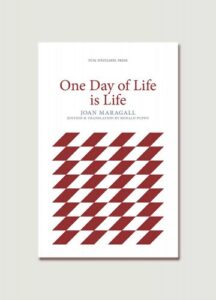
Joan Maragall (tr. by Ronald Puppo), One Day of Life is Life
(Fum d’Estampa Press)
This bilingual anthology of Joan Maragall’s poetry and prose has been both edited and translated by Ronald Puppo, an academic and translator at the University of Vic, and won the 9th Ramon Llull Literary Translation Prize in November 2021. Maragall is perhaps the most eminent poet and journalist in the Catalan language and Ronald Puppo’s thoughtful introduction helps to contextualize Maragall’s significance in Catalan literature for the reader. His deft translations never feel weighed down by expertise or wordiness in this extensive collection but retain a freshness and beauty which highlights the serenity of Maragall’s poetic vision when juxtaposed with his prose from pivotal moments of Barcelona’s history—an accessible initiation into the work of a master.
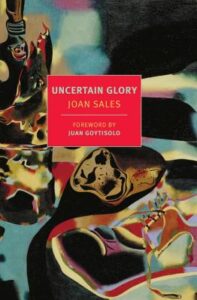
Joan Sales (tr. by Peter Bush), Uncertain Glory
(New York Review of Books)
While Uncertain Glory was published in heavily censored form in 1956, Sales continued to work on it until a definitive version became available in 1971. At its core the story of three men who love the same woman, it was the first novel to tell the story of the Spanish Civil War from the losers’ side, borne of the writer’s own experience on the Madrid and Aragon fronts. But as Sales interweaves the lives of Trini, Lluís, Juli and Cruells, he avoids any easy division into good and evil, invoking only the grey murkiness of a fratricidal conflict that continues to resonate even today. Its themes of trauma and loss—of youth, illusions and ideals—are universal, but its Dostoyevskian heft and innate understanding of place make this novel an authentic counter to such classic narratives of the Spanish Civil War as Orwell’s Homage to Catalonia or Hemingway’s For Whom the Bell Tolls.
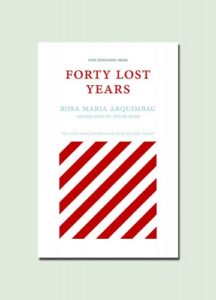
Rosa Maria Arquimbau (tr. by Peter Bush), Forty Lost Years
(Fum d’Estampa Press)
Forty Lost Years is an engaging feminist first-person narrative of a young Catalan girl striving to “be free” and follows her life from the 1930s to the 1970s. Laura is determined to be independent and live on her own terms as a seamstress, striving to rise above her modest background while shunning the more traditional goals of marriage and children. Her searing honesty and lack of sentimentality are refreshing, and her experiences as a refugee in France and attempts to leave for Mexico offer a perspective on the Spanish Civil War and subsequent dictatorship rarely seen in translated literature. Largely forgotten and neglected until recently, Arquimbau has now been deservedly published by Fum d’Estampa Press in an elegant translation by Peter Bush.
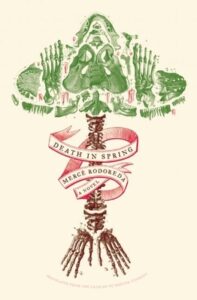
Mercè Rodoreda (tr. by Martha Tennent), Death in Spring
(Open Letter)
Rodoreda is one of Catalonia’s most celebrated writers but remains surprisingly unknown to Anglophone readers. Her most well-known work is En Plaça Diamant (most recently translated as In Diamond Square in Peter Bush’s translation) but this posthumous novel is darker, weirder and altogether more powerful. Through the eyes of a 14-year-old boy, it tells the story of the bizarre, violent rituals of a nameless town which he must navigate mostly alone after his father’s death. Tennent skillfully renders Rodoreda’s lush, poetic language while maintaining the bewitching atmosphere of ambiguity throughout a chilling yet compulsive tale.
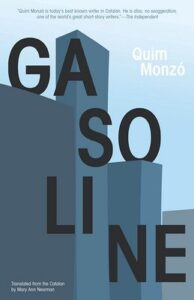
Quim Monzó (tr. by Mary Ann Newman), Gasoline
(Open Letter)
Quim Monzó is primarily known as a prolific master of short stories, so any of his collections might be a more apt choice, but for me his humor seems at its quickest, his pen at its sharpest in his novel Gasoline, and it’s brilliantly brought over to English by Newman. In Part One, Heribert Julià has three weeks to complete a staggering number of works of art before his show. But Heribert can’t focus, and the readers follow him as he tails his wife and her new lover, wandering hopelessly around the city. In Part Two, Monzó focuses on Humbert, a young artist in a fever of creative production. Slowly it is revealed that Heribert and Humbert are merely two sides of the same pursuit, and beyond his wicked drollery and pointed skewering of the 1980s New York art scene Monzó is asking his readers deeper questions about art and creativity and truth—witty and unforgettable.
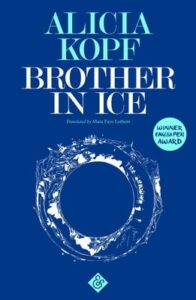
Alicia Kopf (tr. by Mara Faye Lethem), Brother in Ice
(And Other Stories)
This is a hybrid novel—part travelogue, part research notes and fictionalized diary—about the narrator’s development as an artist and her relationship with her family, especially with her autistic brother (of the title). At first glance it seems episodic, but it soon becomes clear that Kopf is firmly in control of the novel’s trajectory through an initial exploration of ice followed by a more introspective delving into her emotions, circling back to its polar origins when the narrator travels to Iceland. The writing is concise but beautiful and unafraid to pose deep philosophical questions about what makes us who we are, and deftly recreated in Lethem’s translation. It has haunted me since I finished reading it.
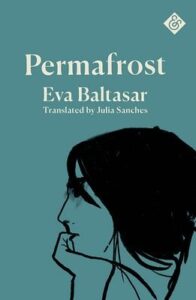
Eva Baltasar (tr. by Julia Sanches), Permafrost
(And Other Stories)
When her first novel was published in 2018, Eva Baltasar was already an established poet and her ear for rhythm shows in the staccato beats of every line. Her peripatetic outsider restlessly journeys from Barcelona to Scotland to Brussels, always seeking somewhere or something in the arms of strangers. She is biting and churlish yet darkly funny and engaging, and pulls the reader along for the ride. Sanches’ translation retains the dizzying rhythms of Baltasar’s writing and walks her tightrope between poetry and prose with aplomb. Boulder, the second part of Baltasar’s planned triptych and also translated by Sanches, is already available and equally brilliant.
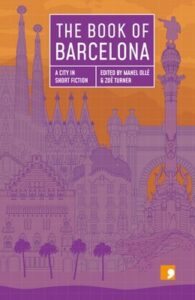
Ed. by Zoe Turner and Manel Ollé, The Book of Barcelona
(Comma Press)
As Wilder Winds shows, the Catalan short story is a form of rich pickings, and no better introduction to some of Catalonia’s best writers than Comma Press’ latest offering in their Reading the City series: ten stories by ten authors, translated by ten translators, the majority from Catalan. From a woman on the verge of leaving the city in “The Santa Anna Hotel” to a launderette love affair in “Speed Queen,” the characters move through a Barcelona that is often sordid and unwelcoming. Multi-voiced, sprawling, swaggering, these narratives clash yet chime to produce a rich, multitudinous vision of this beguiling, complicated city that extends far beyond the tourist trail of the Sagrada Família and the Rambles: simply enthralling.
__________________________________
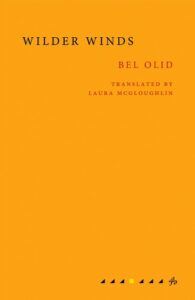
Wilder Winds by Bel Olid, translated by Laura McGloughlin, is available from Fum d’Estampa Press.




















